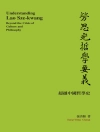In
The Philosophy of Change, the distinguished scholar of Chinese philosophy Chung-ying Cheng advances our understanding of the
Yijing by analyzing its philosophy in comparison to Western philosophical traditions. Cheng focuses on critically comparing philosophies of science, religion, and metaphysics in Leibniz, Whitehead, Neville, and Cobb alongside classical Chinese views on reality, divinity, knowledge, and morality. The book begins and ends with questions related to the character of Chinese metaphysical traditions, which contrast with the mainline metaphysical traditions found in Western Europe and North America. Cheng argues throughout the book that the philosophical underpinnings of basic concepts in Chinese culture are ultimately rooted in key claims found within the
Yijing 易經 and one of its standard commentaries, the
Yizhuan 易傳. The book serves as a complementary volume to the author’s previous book,
The Primary Way: Philosophy of the Yijing, which lays out a comprehensive and systematic philosophy based on the symbolism and text of the classical document and its traditional commentaries.
Innehållsförteckning
Preface
Introduction: Comparative Insights and the Philosophy of the
Yijing
1. On the Origins of Chinese Philosophy: Three Aspects of Origins
2. Classical Chinese Views of Reality and Divinity
3. The Trinity of Cosmology, Ecology, and Ethics in the Confucian Personhood
4. Toward an Integrative Pluralism of Religions: Embodying Yijing, Whitehead, and Cobb
5. On Neville’s Understanding of Chinese Philosophy: The Ontology of
Wu (无), the Cosmology of
Yi (易), and the Normalogy of
Li (理)
6. Time in Chinese Philosophy
7. On the Hierarchical Theory of Time with Reference to Chinese Philosophy of
Dao (道) and
Qi (气)
8. Leibniz’s Notion of a Universal Characteristic and Symbolic Realism in the
Yijing
Appendix: Greek and Chinese Views on Time and the Timeless
Notes
Selected Bibliography
Index
Glossary Index
Om författaren
Chung-ying Cheng is Professor of Philosophy at the University of Hawai’i. His many books include
New Dimensions of Confucian and Neo-Confucian Philosophy and
The Primary Way: Philosophy of Yijing, both also published by SUNY Press.












